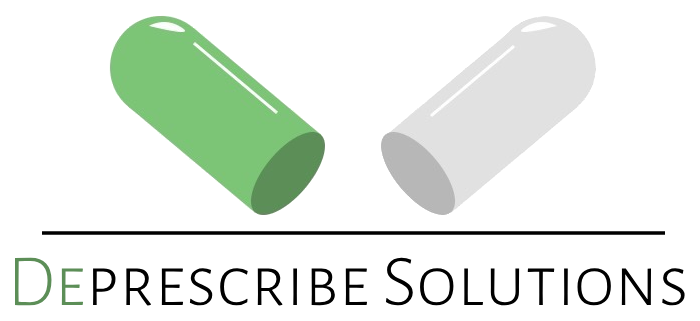Want to catch up on other articles from this series?
A recent article in the Atlantic proclaimed that the First Year in AI College Ended in Ruin. Since ChatGPT became available to the public in November 2022, it’s caused significant disruption and issues for educational institutions across the globe. The genie is out of the bottle. As AI continues to evolve and become more ubiquitous, teachers from elementary to university will need to constantly adapt on the fly to keep up with the abundance of new tech infiltrating the classroom. What will the future of education look like as new generations of Language Learning Models and AI-boosted software become readily available at students’ fingertips? More relevant to this post, where does our understanding of ADHD fit into this? How will these technologies influence how we think about ADHD? Ask any parent or educator, they’ll tell you addressing ADHD is about helping children pay better attention, improve their academic performance and help them successfully navigate our complex educational systems. However, ChatGPT and AI have arrived, and it’s becoming evident that our traditional methods of standardized testing and grading academic performance may need to change.

The AI Term Paper
Towards the end of the 2023 academic year, ChatGPT-generated essays and AI-generated plagiarism wreaked havoc on college campuses. Debates ensued on the ethical implications and practical challenges of integrating AI-based tools into college curriculums. These tools have tremendous potential, both positive and negative. Just spend a few minutes on ChatGPT and you’ll be mesmerized by its capabilities. As AI-based software and educational tools continue to develop, students will have no choice but to adapt and adopt these tools. It would be foolish to do otherwise.
Ethics and Academic Integrity
It’s easy to blame COVID-19 and the pandemic for the current state of affairs. Back when we were in lockdowns and students were forced out of classrooms and onto Zoom, education took a turn for the worse. Working in pediatrics and family medicine, I’d frequently talk to parents, young adults and teenagers about their struggles in school. Parents would complain incessantly about the idiocy of Zoom schooling and the challenges of putting a 5-year-old in front of an iPad for 8 hours. High school and university students would complain about grade inflation and the moral dilemmas of walking a straight line while their peers cheated every chance they had.
Hindsight is always 20/20 but we should have been more prudent. It’s no wonder why teen mental health issues like anxiety and ADHD are skyrocketing when we’ve created an educational environment focused solely on achieving high grades, at the expense of critical thinking. The pandemic normalized cutting corners and allowing students to take the path of least resistance. What’s the future of education if these trends continue? AI will likely disrupt every industry we can think of, including our education system. How will it adapt to the upcoming AI revolution?
Evolution then Revolution
I would encourage everyone to look up the late, Sir Ken Robinson. His work in academics and pushing back against the current narrative of ADHD is essential. To paraphrase from his TED Talk above, we need a revolution in education. A revolution that nurtures creativity and individual talents rather than standardization and compliance.
One way or another, the revolution is coming. Technology and AI will continue to evolve at an exponential pace. There will soon be an abundance of AI tools available that will be able to perform virtually every function required of students. From research to assignments, papers, and test prep (likely even test taking). Hopefully, this will lead to the academic revolution Sir Ken Robinson may have envisioned. Of course, nobody can predict what the job market will look like in 2030. One thing is certain. AI technology can disrupt the traditional educational standards where we assess intelligence and academic ability through standardized testing, memorization of facts and regurgitation. Perhaps the future will reward the students with the most creativity and diversity of skills, nobody knows but we’ll find out.
No Child Left Behind
Every parent wants what’s best for their child. We dream our kids will soar to the highest of highs without experiencing any lows along the way. It’s human nature. We want our kids to attend prestigious academic institutions and build the perfect career, setting them up for a prosperous future. Setbacks inevitably occur. And when our children may be struggling academically (most likely due to environmental factors, overabundant use of technology, social media, and smartphones), the quick fix imposed by academia and medicine is to assign a label. ADHD and all sorts of anxiety disorders have exploded over the last few decades, especially among the youth.
The solution is often to rely on medications. Many cases may be warranted. But, in my practical experience talking to parents, young adults and teenagers, certain patterns emerge. You can see the parallels between our education and healthcare systems. Both systems were designed during the industrial revolution of the 19th century. They focus too much on standardization rather than individualization. In healthcare, we put too much emphasis on masking symptoms instead of addressing root causes. Likewise in education, we stress high grades and fast-tracking to college, instead of nurturing curiosity and creativity. Combine the two, and it’s clear why we’re grappling with a mental health epidemic.
If you’d like to follow my writing, please subscribe to my newsletter.
You can also follow my writing on my Substack.
P.S. If you or anyone you know is interested in coming off their meds or learning more about deprescribing, click on “Work with Shawn” at the top of the site, or you can fill out the form below to contact me directly.
May you be happy and healthy.
SG

